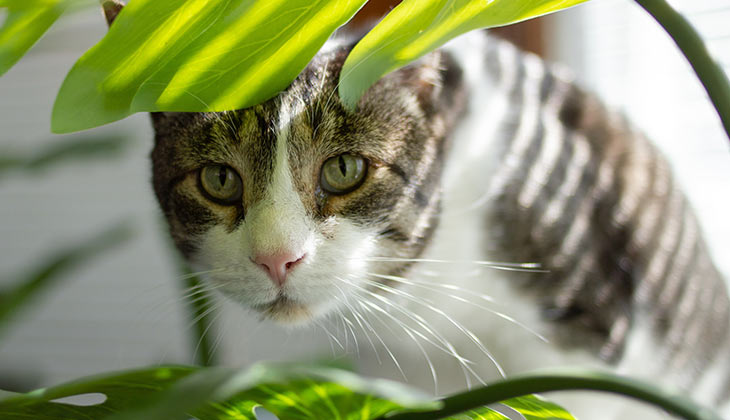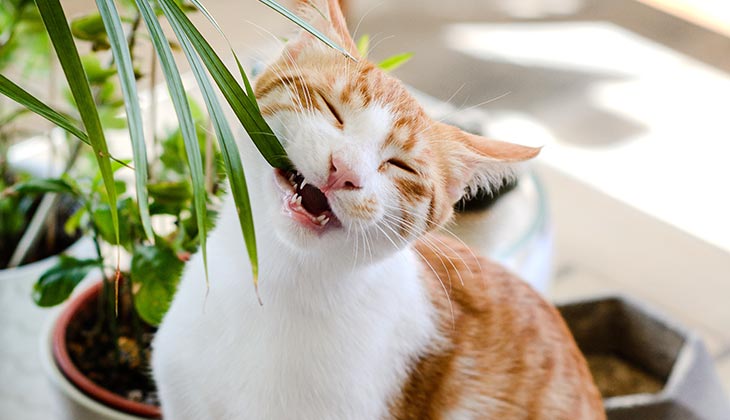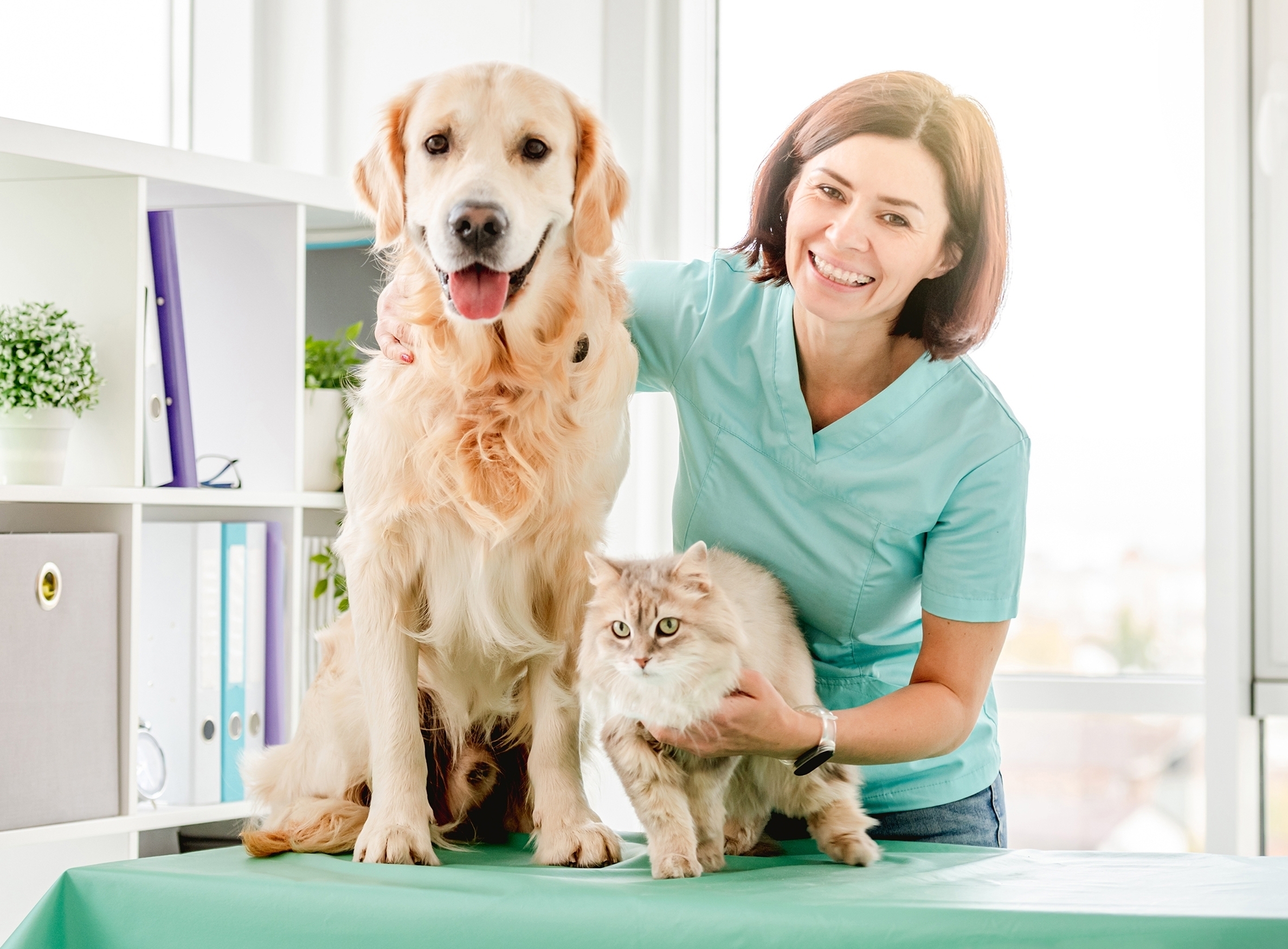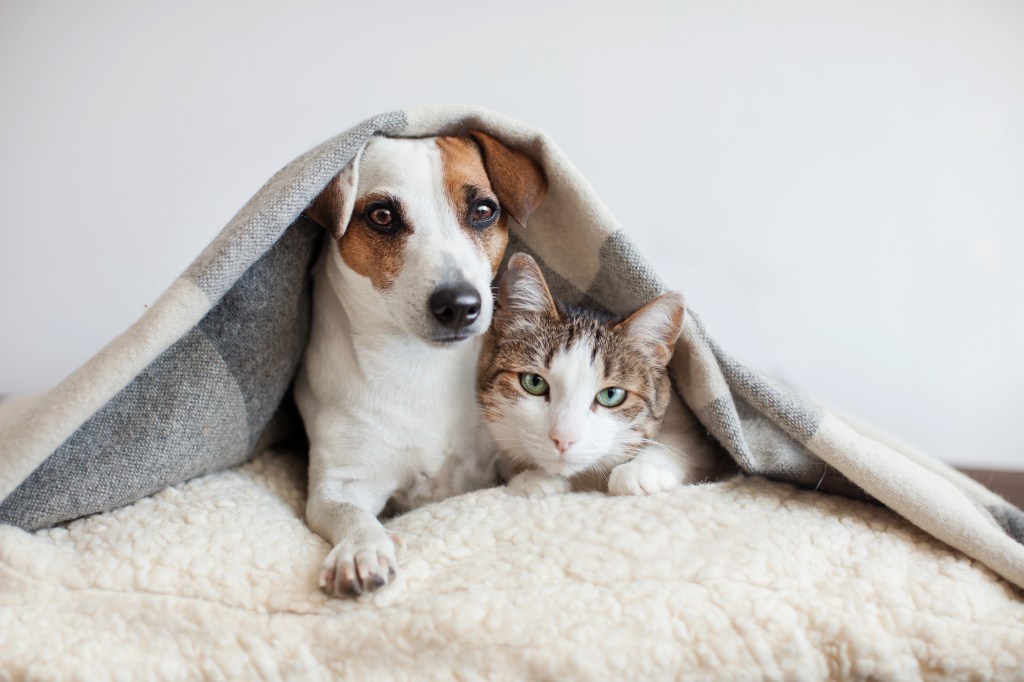Having plants inside and outside of your home can make your environment a happier place and be a real source of pleasure. Gardening has been proven to relieve stress, boost creativity, productivity, focus, and promote recovery. However, it’s important to know that when you have a cat or dog at home, there are many plants that can be toxic – even deadly.
There are about 700 plants and herbs that may be poisonous to your pet. This means that these plants have been identified as producing toxic substances in sufficient amounts that can cause harmful effects if ingested by your pet. Poisonous plants may cause reactions ranging from mild, such as nausea and diarrhoea, to severe, such as breathing difficulties and even death. Signs of plant poisoning are not always obvious, and it is often difficult to estimate how much of a plant was ingested by your pet. Ingestion of a potentially poisonous plant typically causes signs in both dogs and cats. One exception is the lily family, which is very poisonous to cats.

Can I keep my pet from eating plants?
There are some factors that may motivate your furry friend to eat plants and being aware of these might help you to prevent this from becoming a habit. These issues include:
- Spending a lot of time alone and being bored and unstimulated or roaming aimlessly around house or yard.
- Not doing enough exercise.
- A lack of water and high temperatures, especially during warmer months.
- A move to a new house.
- Lack of space.
What do I do if I suspect my cat or dog has ingested a potentially poisonous plant?
If you suspect your pet has ingested anything toxic (plant or otherwise), contact your veterinary practitioner immediately.
If you can identify which plant your pet was ingesting, take a sample or photograph of it to show to your veterinary practitioner. This will help your veterinary practitioner to select the most appropriate treatment for your pet.
What Signs Should I Watch For?
There is an extremely wide variety of plants that are toxic to pets if ingested. It is important to note that the consumption of any plant material may cause vomiting and gastrointestinal upset for dogs and cats. If you have any concerns about a plant, you can contact your veterinary practitioner.
Signs of toxic reactions in pets vary and many pets will display a combination of symptoms. Some specific things to watch for include:
- Vomiting
- Diarrhoea
- Drooling
- Decreased appetite
- Oral pain – which may be exhibited by pawing at the mouth or face
- Abdominal discomfort
- Skin irritation
- Tremors, head shaking
- Drop in blood pressure, respiratory depression
- Lethargy
- Swelling of the mouth, lips and tongue
- Difficulty swallowing

While some plants, like ivy, are only mildly toxic (but can still cause drooling, vomiting, abdominal discomfort and diarrhoea), other plants, such as lilies, are extremely dangerous to cats in particular. Cats are sensitive to all members of the lily family. Poisoning can result from ingestion of even a small amount of plant or petal material or even pollen (from water in a vase). Ingestion of lilies causes acute kidney failure in cats.
Oleander is another plant that is potentially very dangerous to both cats and dogs. Ingestion may be followed by abnormal heart rate and rhythm, drooling and vomiting, tremors, and seizures.
As mentioned above, there are over 700 potentially toxic plants to our beloved pets. The best protection is prevention — you can find specific lists of toxic plants on the website of your local animal poison control center, or just ask your veterinary practitioner!
Looking for a Veterinary Practitioner?
Your veterinary practitioner plays a big role in your pet’s health. Enter your location information and get a list of vets near you.
FIND A VETERINARY PRACTITIONER NEAR ME





 Go To United States
Go To United States Austria
Austria Belgium
Belgium Czech Republic
Czech Republic Denmark
Denmark Europe
Europe Finland
Finland France
France Germany
Germany Greece
Greece Hungary
Hungary Ireland
Ireland Israel
Israel Italy
Italy Netherlands
Netherlands Norway
Norway Philippines
Philippines Poland
Poland Portugal
Portugal Romania
Romania Saudi Arabia
Saudi Arabia Slovakia
Slovakia South Africa
South Africa Spain
Spain Sweden
Sweden Switzerland
Switzerland Turkey
Turkey United Kingdom
United Kingdom